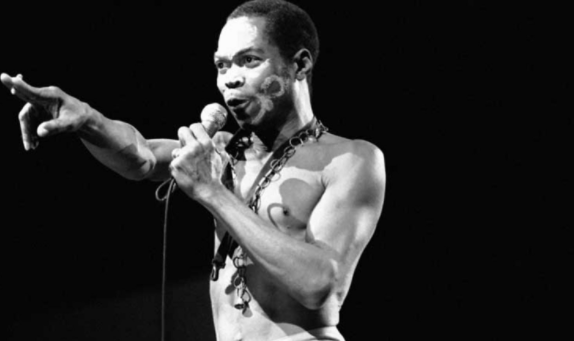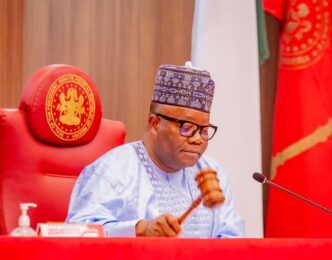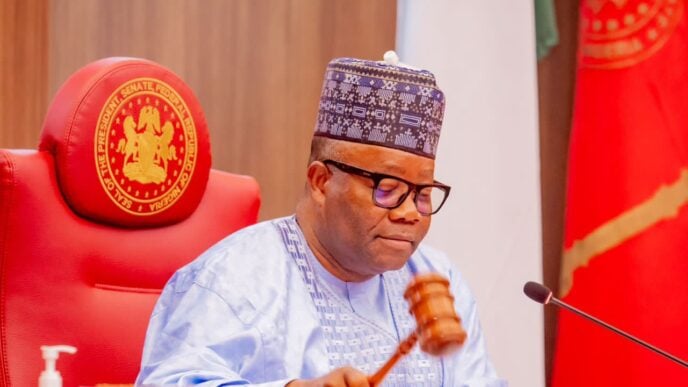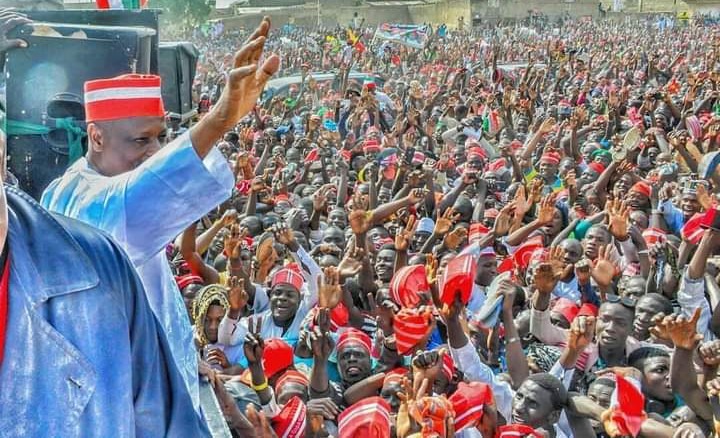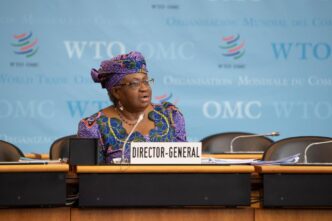As Nigeria celebrates her democratic journey and continues to position herself as a credible and guiding voice on the global stage, I cannot help but reminisce on the dominant and ever-present legacy of Fela Anikulapoti Kuti – a one-man movement and an effervescent brand – whose influence transcends politics, generations, and borders.
Being a leading voice in global affairs, Nigeria’s most enduring soft power asset is not just in its oil reserves or economic policies – it is in its culture and creative industries. And no single figure embodies Nigeria’s cultural influence more than Fela Anikulapo Kuti. His music, his activism, and his global recognition place him among the most potent soft power figures Africa has ever produced, shaping perceptions of Nigeria far beyond its borders. Fela was more than a musician, he was, and remains, a diplomatic asset – a living embodiment of Nigeria’s soft power whose cultural, political, and Pan-African resonance gives the country a unique global currency that few nations possess.
Fela represents a version of Nigeria the world deeply respects – defiant in the face of injustice, audaciously creative, and unapologetically African. The “Black President” as he was fondly called by his teeming hoard of diehard followers, was a revolutionary who promoted Pan-Africanism – a close friend of the radical Thomas Sankara of Burkina Faso, who also espoused the philosophy of the great Kwame Nkrumah. During his visit to America in 1969, he became inspired by the civil rights movement led by Malcolm X and his music became more politically motivated – he became a symbol of resistance and fight against oppression, bad leadership and corruption across Africa. Like Bob Marley, whose music became a soundtrack to liberation struggles in the Caribbean and Africa, Fela’s music served not only as cultural entertainment.
Fela’s music influenced anti-colonial struggles beyond Nigeria’s borders. He stood with Black liberation movements across continents, embodying a Pan-African consciousness that was both global and deeply rooted. His rhythms gave voice to the silenced, and his message inspired movements from the vibrant streets of Lagos to the liberation trenches of Zimbabwe, Mozambique, and Angola. He openly supported freedom fighters in Zimbabwe, condemned apartheid in South Africa, and his songs reached and energized movements in Mozambique and Angola. After a split of his band in 1978, Fela formed a new band named “Egypt 80.” His decision to rename his band “Egypt 80” was no artistic whim. It was a deliberate invocation of Africa’s ancient glory, a refusal to let the world forget that the cradle of civilization lies within the African continent.
Advertisement
That’s why Fela remains an essential figure in Nigeria’s soft power arsenal. At a time when countries are racing to define their global image through culture, Nigeria already has a brand that commands global attention.
The prime asset value of Fela Kutis’ name was recently reaffirmed when he became inducted into the Grammy Hall of Fame along with the likes of Michael Jackson, Jay Z, Luther Vandross and other music icons. The inducted recording – his iconic album of 1976 “Zombie” (by Fela Kuti & Africa 70)- was an album that was more than a song. Like many of Fela’s works, “Zombie” became an international force, rallying cry for the oppressed across nations. Fela’s music confronted. Albums like VIP (Vagabonds in Power), and ITT (International Thief Thief) were acts of cultural diplomacy and political protests, continuously challenging the excesses of corrupt and brutal military regimes.
Zombie, which mocked the blind obedience of soldiers, was banned in neighboring Ghana and sparked violent retaliation in Nigeria. It led to the deployment of over a thousand soldiers to destroy Fela’s commune at kalakuta Republic in Nigeria, resulting in the death of his enigmatic mother, the colossal Funmilayo Ransome-Kuti, herself a beacon of the civil rights movement against colonial rule and a suffragist, fighting for women’s rights to vote. That the Nigerian military saw Fela as a threat is precisely what makes him a soft power asset today. His defiance against authoritarianism, captured so powerfully in his art, resonates with democratic ideals and gives Nigeria moral authority in global conversations on justice and freedom. Without a doubt, had Fela lived during the June 12, 1993, saga, he would have been a resonant voice.
Advertisement
Fela was a tireless activist with an indomitable spirit, who not only led the fight against military juntas in Nigeria but also inspired opposition to the apartheid regime in South Africa and colonialism in general, through songs like “Beasts of No Nation” and “Upside Down.” In “Beasts of No Nation” he vigorously challenged the powers that be for sustaining the apartheid regime and the album cover had caricatures of Margaret Thatcher, Ronald Reagan and Pieta Botha amongst others.
As we seek to reposition Nigeria as a reputable and dominant trademark within the committee of Nations, it becomes an imperative to leverage on the strategic value of the enigmatic legacy of “Baba Kuti.” Fela is a “currency” that still commands respect in this day and age. A legend and creator of the Afrobeats genre which has produced credible international voices like Burna Boy, Davido, Wizkid, Tiwa Savage, Rema, Yemi Alade and a host of others, who have defied all logic to dominate at the global level. And every time they step onto a global stage, they are not just selling music – they are exporting Nigerian identity, values, and voice. That is the very definition of soft power.
Just like his adopted middle name, in the Yoruba dialect of Nigeria “Anikulapo” (he who has death in his pouch) indicates, Fela’s influence has endured and exceeded seasons and tyrants; succeeded military regimes and despots, leaving an indelible imprint on the annals of time. In 2010, the world paid tribute to this legacy when FELA!, the Broadway musical directed by Tony Award winner Bill T. Jones, received 11 Tony nominations. The show was more than entertainment – it was a cultural statement that told global audiences: Nigeria has icons who transcend geography.
Fela is more than a historical figure – he’s a platform. His cultural commentary was equally potent. In songs like Yellow Fever, Fela challenged the Western-imposed beauty standards that plagued African identity. He urged African women to embrace their natural selves, preempting today’s global conversations around decolonising beauty and reclaiming identity. He was not just ahead of his time; he was creating the tempo for times yet to come.
Advertisement
So, as Nigeria defines her role in this multipolar world, it would be a costly mistake to overlook the legacy of Fela. But make no mistake: this isn’t just about music. This is about image. Influence. Global capital. It is about Nigeria’s ability to speak not just through presidents and diplomats, but through rhythm, resistance, and soul. He should not be omitted from national awards.
Fela’s story, his sound, his struggle, are Nigeria’s soft power gold. In an era where influence often outpaces force, Fela remains a loud voice in global diplomacy. To embrace his legacy is not just to honour Nigeria’s past – it is to leverage our culture for the future. We are direct beneficiaries of this diamond legacy that should be flaunted. Fela is a currency the world still trades in. Nigeria must not waste it.
Oshodi is the Senior Special Assistant to the Nigerian President on Foreign Affairs and Protocol
Advertisement
Views expressed by contributors are strictly personal and not of TheCable.

